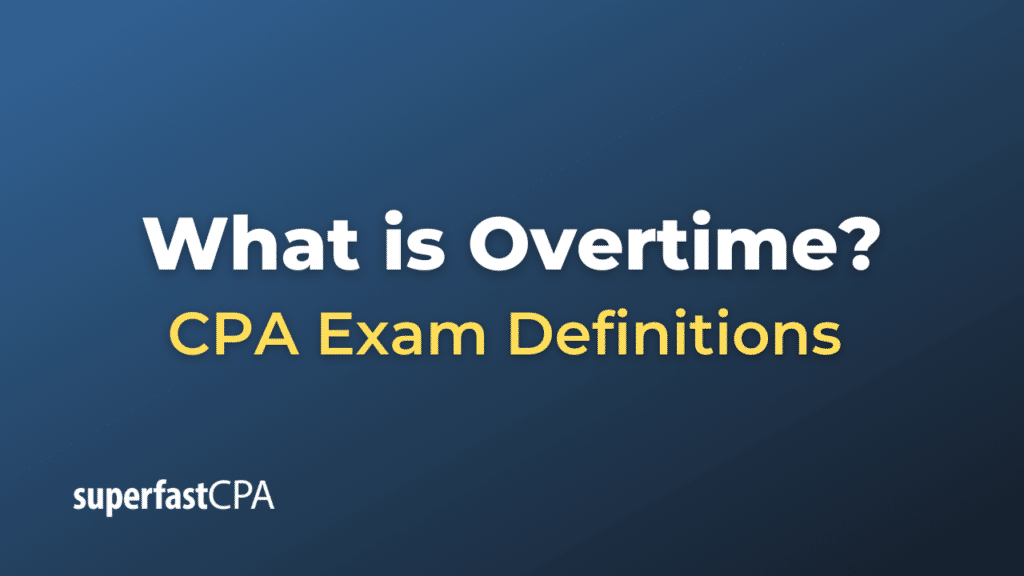Overtime
Overtime refers to the time that an employee works beyond their regular scheduled working hours. The definition of “regular working hours” varies depending on the country, state, or even specific employment contracts, but in many places, it’s defined as a 40-hour work week.
When an employee works overtime, they are usually entitled to a higher pay rate for the extra hours. In the United States, for example, the Fair Labor Standards Act (FLSA) requires that employees receive overtime pay of at least one and a half times their regular pay rate for any hours worked beyond 40 in a workweek. However, certain types of employees are exempt from these overtime provisions, including certain salaried executive, administrative, and professional employees.
Overtime can also refer to extended work periods in industries with different standard schedules. For example, in some healthcare settings, a 12-hour shift might be considered regular hours, and only time worked beyond that would count as overtime.
Overtime pay is designed to compensate employees for the extra time and effort they put into their work, but it’s also intended to encourage employers to manage their labor resources effectively, and discourage overworking employees. However, in some high-pressure industries, working overtime can be quite common.
Example of Overtime
John is an hourly worker at a manufacturing company, and his regular rate of pay is $20 per hour. His standard work week is 40 hours.
One week, due to a surge in orders, John is asked to work an extra 10 hours. These extra 10 hours are considered overtime.
In the United States, under the Fair Labor Standards Act (FLSA), John is entitled to receive “time and a half” for these overtime hours. This means he should be paid 1.5 times his regular hourly rate for the overtime work.
So, for the overtime hours, John would earn $20 * 1.5 = $30 per hour.
If we calculate his total wages for the week:
- For the first 40 hours, John earns $20/hour * 40 hours = $800.
- For the 10 overtime hours, John earns $30/hour * 10 hours = $300.
So, his total earnings for the week would be $800 (regular wages) + $300 (overtime wages) = $1,100.
This extra pay for overtime serves as compensation for the additional time and effort John has invested in his work beyond the standard working hours.













